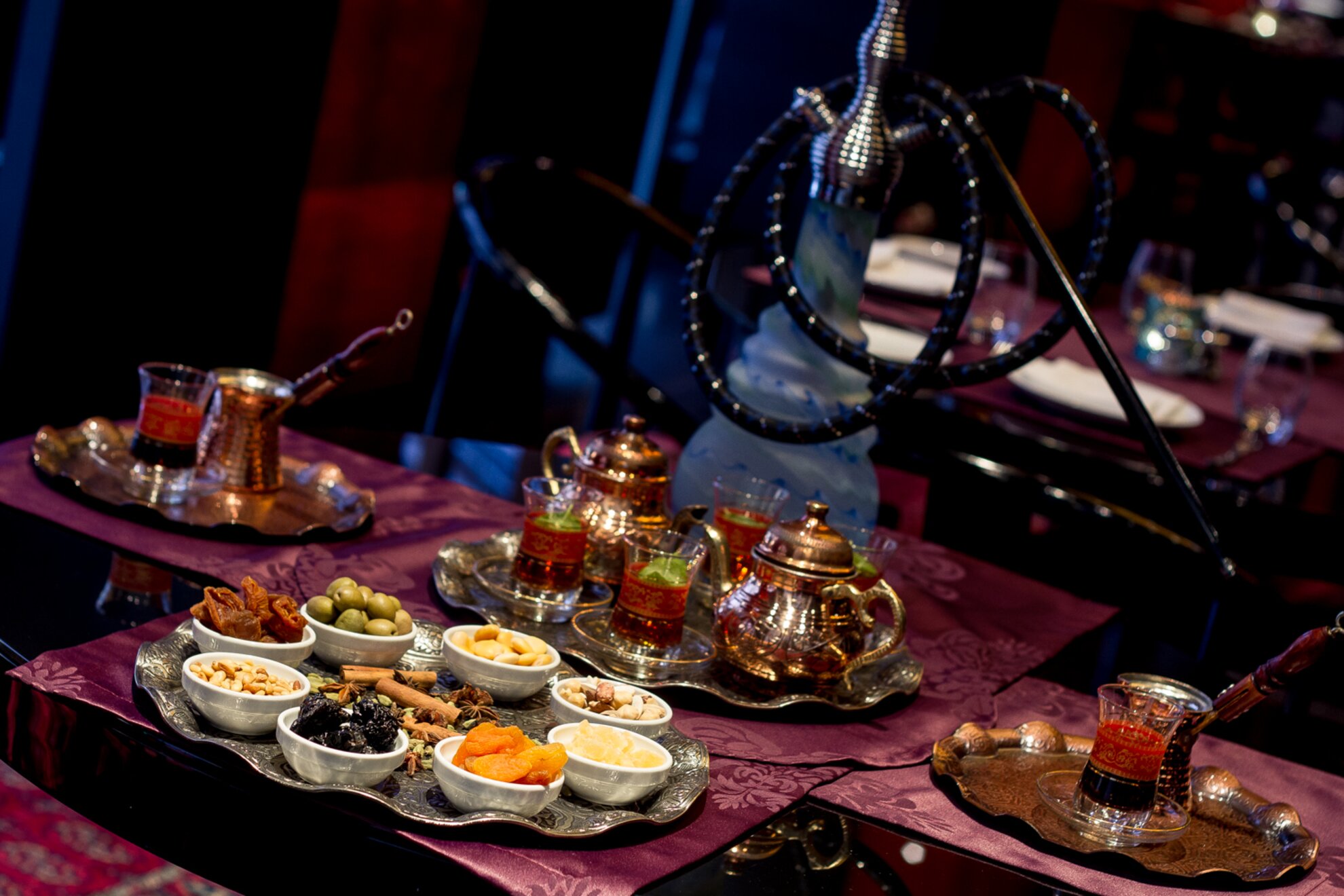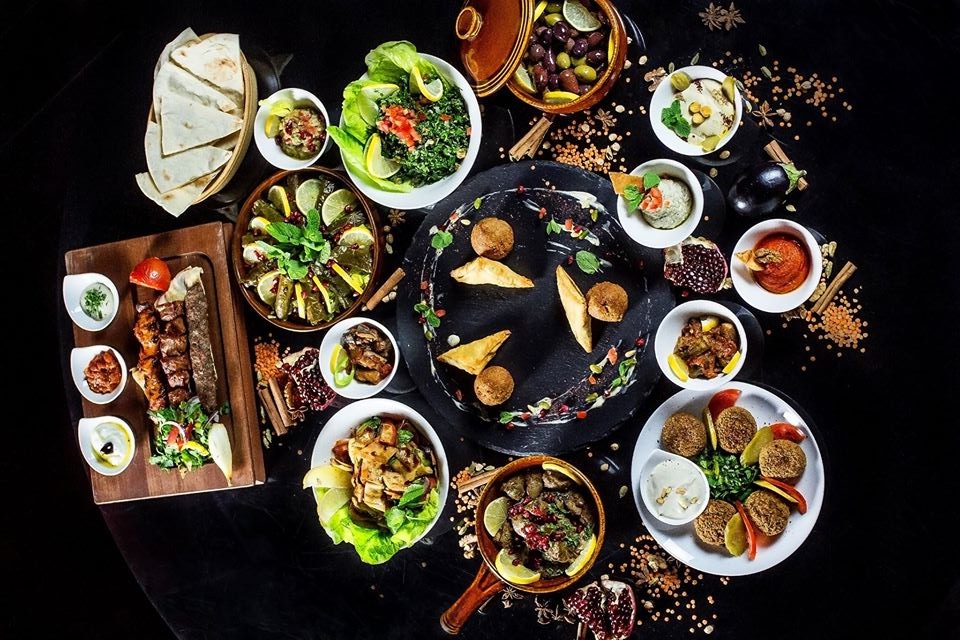The first thing we associate with Lebanese cuisine is hummus and tabbouleh salad, but there’s much more to it than that: sweet and salty flavor combinations, fresh vegetables and fruits, and imaginative lamb dishes. We recently visited Baalbek, the latest culinary attraction of Budapest’s deluxe Buddha-Bar Hotel, where it’s best to arrive with company and eat some “mezze” dishes together.

There are countless Turkish buffets and a growing number of Israeli food bars in Budapest, but we have limited options when it comes to authentic Syrian, Egyptian, or Lebanese cuisine. Baalbek freshly fills this gap, and even though this restaurant is housed in a five-star hotel, this shouldn’t intimidate anyone from giving it a try, as both the prices and the atmosphere are accessible. The covered terrace suggests an easygoing attitude, with its comfortable couches and snug cushions. The name of the restaurant refers to a Lebanese city, which also appears on a painting by the famous Hungarian painter Tivadar Csontváry Kosztka – the logo reflects this artwork, as well.

The interior isn’t too flashy; the patterned rugs and Oriental accessories create a pleasant atmosphere, and the cozy cushions make us want to stay for hours, just like the food that prompts guests to peck around and chat for as long as they desire. We are already familiar with the world-class Asian dishes of chef Osama Kutaini from the refined restaurant of Buddha-Bar Hotel, so we were glad to find out that he is in charge of Baalbek, as well. Naturally, the dishes are prepared using “halal” methods.

Before ordering, we receive tea, Lebanese flat bread, and pickles as appetizers. A Lebanese lunch or dinner is a real community meal, and begins with mezze – which is the Lebanese equivalent of Spanish tapas. The seemingly small portions of appetizers (mostly creams and meaty pastries) are quite filling because of their variety of flavors, so it’s best to take your time while eating. Before our mezze selection, we taste the traditional harira soup (1,700 HUF), which is fresh and a bit Mediterranean with lamb meat, citrus, and coriander. In the two mezze dishes, the two dominant ingredients are chickpeas and eggplant. Fortunately, the hummus recipe isn’t adjusted for European tastes, and the tabbouleh focuses more on the parsley than the couscous, as well. We have two favorites here: the kibbeh, crushed wheat with meat and pomegranate, and the moutabel, eggplant cream with tahini. The cold and hot mezzes can also be ordered by themselves (1,200-1,900 HUF). In fact, we think it’s best to save some creams for the main dishes.The kebab khaskhash, minced lamb with garlic and chili (3,100 HUF), arrives formed into a sausage, and its strong taste is even better when eaten with hummus. Our favorite, however, is the shish kebab, marinated lamb cubes with condiments (3,100 HUF), because of its tenderness and smoky flavor. The desserts are excellent, as well: the Um Ali, milkloaf pudding with nuts, raisins and coconut (1,200 HUF) could be called an Arabian version of Hungary’s classic arany galuska dessert, and the mouhalabieh, Lebanese milk pudding (1,200 HUF), is made with rose water to give it an especially aromatic flavor. These can be a sweet enough conclusion to any meal, but if we still didn’t enjoy enough Middle Eastern delight, we can also smoke a shisha on the covered terrace – which will be open in the summer season.
Baalbek is a pleasant, friendly eatery with competent service and traditional flavors, so it’s well worth visiting for anyone who wants to expand their culinary repertoire and experience genuine Lebanese delights without flying to Beirut.




